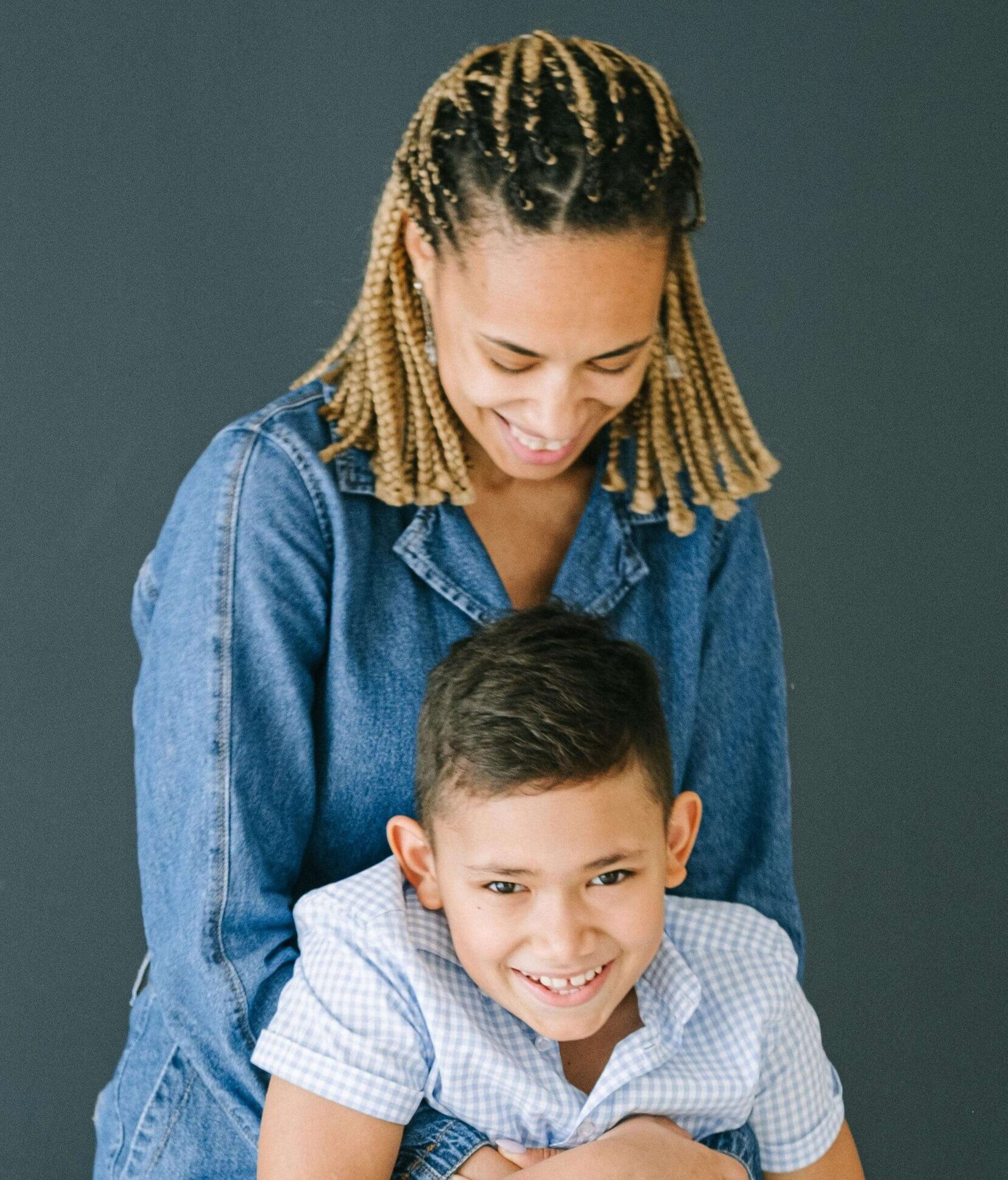Mental health concerns aren’t just something that affects adults — children and adolescents are increasingly facing emotional and behavioral challenges that interfere with school, friendships, and home life. As a parent or caregiver, understanding what’s going on beneath the surface can make all the difference.
At DBT of South Jersey, we specialize in helping children and teens manage emotional difficulties with compassionate, evidence-based care, including Dialectical Behavior Therapy (DBT). In this guide, we’ll break down the five most common mental health disorders in children, their symptoms, causes, and how therapy for children in South Jersey can help them thrive.

Why Mental Health Matters in Childhood
Childhood is a critical time for emotional development. When mental health disorders go unrecognized, they can disrupt learning, social development, and self-esteem, with lasting effects into adulthood. The good news? Mental health disorders are treatable, especially when identified early.
The 5 Most Common Mental Disorders in Children
1. Anxiety Disorders
What It Is:
Anxiety is more than just worry. It becomes a disorder when fear or nervousness is persistent, overwhelming, and interferes with daily functioning. Anxiety disorders are the most common mental health issues among children and teens, affecting approximately 11% of children aged 3–17 (CDC).
Common Types:
- Generalized Anxiety Disorder (GAD): Chronic worry about everyday things
- Separation Anxiety Disorder: Fear of being apart from caregivers
- Social Anxiety Disorder: Intense fear of embarrassment or judgment in social settings
- Phobias: Extreme fears of specific objects or situations
- Panic Disorder: Sudden episodes of intense fear and physical symptoms
Signs & Symptoms:
- Excessive worry, even about routine situations
- Physical complaints: stomachaches, headaches, fatigue
- Avoiding school, social events, or new activities
- Irritability or frequent reassurance-seeking
- Sleep disturbances or nightmares
What Causes It:
- Genetics and family history
- High sensitivity or temperament
- Stressful events (e.g., loss, bullying, trauma)
- Parenting style or environment
How Therapy for Children Helps:
At DBT of South Jersey, our team of child therapists uses DBT and cognitive-behavioral strategies to teach children how to:
- Recognize anxious thoughts
- Use mindfulness to stay grounded
- Learn effective coping strategies
- Build confidence through exposure and support
Parental involvement is crucial. We work with families to support children in managing and reducing anxiety both in and out of the therapy room.
2. Attention-Deficit/Hyperactivity Disorder (ADHD)
What It Is:
ADHD is a neurodevelopmental disorder that affects a child’s ability to focus, control impulses, and regulate energy. It affects about 7 million U.S. children (CDC), often becoming noticeable in early school years, and sometimes earlier.
Types of ADHD:
- Predominantly Inattentive: Difficulty focusing, forgetfulness
- Predominantly Hyperactive-Impulsive: Fidgeting, impulsivity, constant movement
- Combined Type: Features both inattention and hyperactivity
Signs & Symptoms:
- Trouble staying focused or following instructions
- Frequently losing items or forgetting tasks
- Impulsiveness (e.g., blurting out, interrupting)
- Constant movement or talking
- Difficulty waiting for turns or playing quietly
- Emotional outbursts or low frustration tolerance
What Causes It:
- Brain structure and function differences
- Genetics (often runs in families)
- Prenatal exposures (e.g., tobacco, alcohol)
- Low birth weight or premature birth
How Therapy for Children Helps:
While medication can be part of ADHD treatment, therapy plays a major role in helping children develop executive functioning skills. We use DBT to help with:
- Emotional regulation
- Impulse control strategies
- Problem-solving skills
- Parent training to manage behaviors at home
We also collaborate with schools to implement accommodations and strategies that support academic success.
3. Depressive Disorders
What It Is:
Children can feel sad, but depression goes deeper — it’s persistent sadness, irritability, or hopelessness that interferes with a child’s ability to function. About 4% of children aged 3–17 experience diagnosed depression (CDC), though many more go undiagnosed.
Signs & Symptoms:
- Persistent sadness or tearfulness
- Irritability or anger outbursts
- Loss of interest in favorite activities
- Changes in sleep or appetite
- Physical complaints (without a medical cause)
- Fatigue or lack of energy
- Difficulty concentrating
- Feelings of worthlessness or guilt
- Thoughts of self-harm or suicide
What Causes It:
- Genetics or family history
- Environmental stressors (e.g., divorce, loss, trauma)
- Chronic medical issues or bullying
- Low self-esteem or academic struggles
How Therapy for Children Helps:
Depression in children is treatable, and therapy is often the first line of treatment. At DBT of South Jersey, we focus on:
- Building emotional understanding and expression
- Challenging negative self-talk
- Developing skills for managing sadness and hopelessness
- Creating a structure and routine for daily wellness
- Providing parents with tools to foster connection and validation
We also monitor for any signs of suicidal ideation or self-harm and involve appropriate supports when necessary.

4. Autism Spectrum Disorder (ASD)
What It Is:
Autism is a developmental disorder that affects communication, behavior, and social interaction. It appears early in life and lasts across the lifespan. ASD affects about 1 in 31 children in the U.S. (CDC).
Signs & Symptoms:
- Delayed speech or language development
- Difficulty with eye contact or nonverbal communication
- Trouble with peer relationships
- Repetitive behaviors or intense interests
- Sensory sensitivities (e.g., to sounds, textures)
- Rigid routines and resistance to change
What Causes It:
- Genetic and neurological factors
- Likely a combination of genetic and environmental influences
- Not caused by parenting or vaccines (a common myth) (CDC)
How Therapy for Children Helps:
While autism is not something to be “cured,” therapy helps children with ASD function better socially, emotionally, and behaviorally.
Here are just some of the interventions that can help:
- DBT-informed approaches to emotional regulation
- Social skills groups
- Behavioral interventions (e.g., ABA techniques)
- Parent coaching to reinforce strategies at home
- Support with transitions, routines, and sensory needs
With support, many children with ASD build meaningful relationships and thrive in school and at home.
5. Disruptive, Impulse-Control, and Conduct Disorders
What It Is:
These disorders involve persistent patterns of defiant, aggressive, or disruptive behavior that go beyond typical misbehavior. The most common diagnoses in this category include Oppositional Defiant Disorder (ODD) and Conduct Disorder (CD).
Signs & Symptoms:
Oppositional Defiant Disorder (ODD):
- Frequent temper tantrums or arguing with adults
- Refusal to comply with rules
- Deliberate attempts to annoy others
- Easily annoyed or resentful
Conduct Disorder (CD):
- Aggression toward people or animals
- Destruction of property
- Lying or stealing
- Serious rule violations (e.g., truancy, running away)
What Causes It:
- Genetic predisposition
- Exposure to trauma or inconsistent parenting
- Harsh discipline or family conflict
- Neurological factors (e.g., underdeveloped impulse control)
How Therapy for Children Helps:
At DBT of South Jersey, we do not view these children as “bad” — we see their behaviors as a form of emotional dysregulation and unmet needs.
Our therapeutic goals include:
- Teaching distress tolerance and problem-solving skills
- Building empathy and social skills
- Reinforcing positive behaviors
- Engaging caregivers in consistent, supportive parenting
- Addressing underlying trauma or attachment wounds
We use DBT to help children and adolescents understand their emotions, regulate behavior, and rebuild trust with adults.
Why Early Intervention Is So Important
Mental health disorders in children are not a reflection of bad parenting or character flaws. They are health conditions, and like any health issue, they require understanding, compassion, and treatment.
The earlier you seek help, the better the outcome. Left untreated, childhood mental health disorders can lead to:
- Academic failure
- Social isolation
- Substance use
- Self-harm or suicide risk
- Difficulty functioning in adulthood
But with therapy, children can build the tools they need to manage emotions, maintain fulfilling relationships, and grow into emotionally healthy adults.
How DBT of South Jersey Supports Children and Families
We offer specialized programs for children and teens experiencing a wide range of emotional and behavioral challenges. Our therapists are trained in Dialectical Behavior Therapy (DBT) as well as other proven methods tailored to each child’s needs.
Our Services Include:
- Individual Child Therapy: For emotional regulation, behavior challenges, anxiety, and more
- DBT for Adolescents (DBT-A): An intensive program that includes skills training for teens and their families
- DBT for Children (DBT-C): A modified DBT program for children aged 6–12
- Family Therapy: To strengthen family communication and support systems
- Parent Coaching: Equipping caregivers with tools to support their child’s emotional health
- School Collaboration: Coordinating with teachers, school counselors, and support teams
When to Seek Help With Therapy for Children
If your child is showing signs of any of the conditions listed above, don’t wait for things to get worse. Consider reaching out if:
- Symptoms persist for more than a few weeks
- Your child’s functioning at school, home, or with peers is impacted
- There are signs of self-harm, aggression, or extreme withdrawal
- You, as a caregiver, feel overwhelmed and unsure of how to help
You’re Not Alone — Let Us Help
Raising a child with emotional or behavioral challenges can feel isolating and overwhelming. But you don’t have to do it alone. At DBT of South Jersey, we partner with you to understand your child’s unique needs and create a plan for lasting emotional growth.
We believe every child deserves the chance to thrive — and we’re here to support them and you, every step of the way.

Help Your Child Build Confidence, Resilience, and Joy with Therapy for Children in South Jersey
Watching your child struggle with anxiety, ADHD, or depression can be heartbreaking. At DBT of South Jersey, we’re here to help your child heal, grow, and develop lifelong tools to manage their mental health. Reach out today to learn how therapy for children in South Jersey can empower your child to thrive emotionally, socially, and at home. Follow these three simple steps to get started:
- Contact us to book a free consultation with our intake team
- Meet with one of our skilled child therapists
- Start seeing your child thrive!
Additional Services Offered at DBT of South Jersey
At DBT of South Jersey, our dedicated team offers therapy for children to help them build confidence, resilience, and joy. With offices in Moorestown and Voorhees, our services also include support for ADHD, Autism, anxiety, trauma, OCD, as well as family and couples counseling and holistic care. Explore our blog for insightful guidance, practical tips, and helpful resources on therapy for children and teens.
Sources:
https://www.cdc.gov/children-mental-health/data-research/index.html
https://www.cdc.gov/adhd/data/index.html

